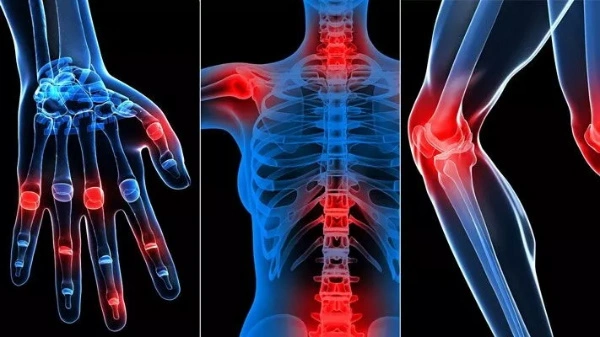Rheumatism genetic

If you tested your DNA with a personal genomics service like 23andMe, AncestryDNA, FamilyTreeDNA, MyHeritage or another testing company, you can learn more about your risk factors for hundreds of diseases. By clicking the button above ⬆️, you can upload your raw DNA data file and receive a personalized 250-page health report with research links that is the most comprehensive.
Various types of rheumatic diseases, such as arthritis, are genetically influenced. Genetics is concerned with the inheritance of human traits, encompassing physical features and susceptibility to illnesses.
Rheumatic diseases are caused by various factors, including genetic background, unique to each disease. Ankylosing spondylitis (AS) is a prime example of the impact of genetics on rheumatic diseases, with the HLA-B27 gene being strongly linked to its development.
The HLA-B27 gene is present in over 90% of AS patients of Caucasian descent, while only about 7% of the general population carries this gene. Therefore, only a small fraction of individuals in the general population (around 5%) who possess the gene will actually develop the disease.
Rheumatoid arthritis (RA) is a complex ailment that affects about 1% of the global population. The immune system gene HLA-DR4 is associated with the development of RA. In individuals of European descent with RA, up to 60-70% possess the HLA-DR4 gene, whereas only 30% of the general population carries it.
RA has a heritability rate of approximately 60%, with HLA contributing between 11% and 37% to this rate. In addition to well-known shared epitope (SE) alleles like HLA-DRB1*01 and DRB1*04, other HLA alleles such as HLA-DRB1*13 and DRB1*15 have been linked to RA susceptibility. A new SE classification categorizes SE alleles into S1, S2, S3P, and S3D groups, with S2 and S3P groups being primarily associated with seropositive RA predisposition. The most significant non-HLA gene single nucleotide polymorphisms (SNPs) linked to RA include PTPN22, IL23R, TRAF1, CTLA4, IRF5, STAT4, CCR6, and PADI4. Large-scale genome-wide association studies (GWAS) have identified over 30 loci involved in RA pathogenesis.
Rheumatoid arthritis is thought to be influenced by non-genetic factors as well. Although the exact mechanism is unknown, these factors may activate the condition in individuals who are susceptible. Possible triggers include alterations in sex hormones (especially in females), exposure to specific types of dust or fibers in the workplace, and infections caused by viruses or bacteria.